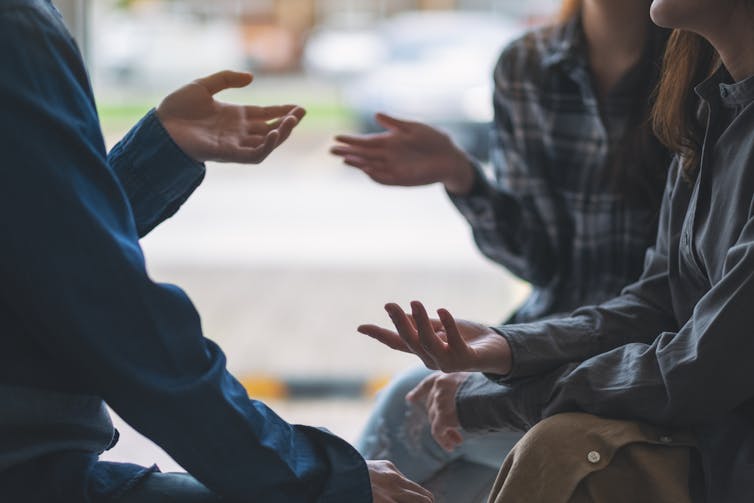is a PhD Student in Philosophy at .
Most people think they acquire their beliefs
But recent arguments between people about issues like trans rights, vaccinations or Roe v. Wade point to a different reality.
Consider . There is plenty of evidence to show that . Moreover, data suggests . A commitment to life, then, should favour . It seems like there is a disconnect: People are not having fact-informed arguments.
The world is hyperspecialized
There is a reason facts are quickly lost in contentious arguments: individual people do not have the resources to deeply understand complex social issues. This is, in part, because the world in which we live is . This means all reliable information is produced thanks to vast, interconnected fields of study. Humans have so we .
For example, the structural integrity of a bridge or the inner-workings of a cell phone are things the collective ãweã understands better together.
But this feature of human knowledge is our downfall when it comes to the persistence of socially erroneous beliefs.
During arguments about social issues between those with differing opinions, one person often ends up insisting that if the other were only rational and could see the evidence, they would change their mind.

include things like racist, homophobic, transphobic and misogynstic ideas. These ideas can lead to significant, negative social consequences, especially for those belonging to marginalized communities.
False beliefs are pervasive in part because of the collective nature of human knowledge. As individuals, we canãt assess every issue since they require specialized knowledge. And while some may argue ãdo your own research,ã individuals donãt necessarily have access to the best avenues to conduct fair research. Not only that, .
Finding someone trustworthy
Due to the sheer volume of information that is relevant to any given social issue, people have developed . These shortcuts have little to do with evidence and much more to do with evaluating who we can trust.
Perhaps unsurprisingly, the extent to which we find a person trustworthy is calibrated according to our social communities. We naturally associate with people who share our values: , and .
Our social communities radically determine who we see as trustworthy. Our social groups , and .

The people already in our communities will appear to be the most knowledgeable ã even if they have no expertise or understanding and even when they are perpetuating false beliefs.
While it might seem like accurate beliefs are easily acquired, people are not quite so adept when it comes to determining what is true, .
Problematic beliefs persist because our psychological and social circumstances donãt situate us appropriately to evaluate issues. This is partly why .
Problematic beliefs are so appealing, then, because theyãre easy.
From the perspective of a person living in a community committed to socially problematic beliefs, there is almost always more ãtrustworthy evidenceã from someone they know.
Instead of complacent acceptance of misinformed beliefs, we need institutional moves to cultivate trust between experts and the public.
Perhaps more importantly, we need to cultivate a shared commitment to recognizing the humanity in others. Arriving at a problematic belief is easy, but building a better world requires authentic relationships and coalitions across community lines.![]()
This article is republished from under a Creative Commons license. Read the .

